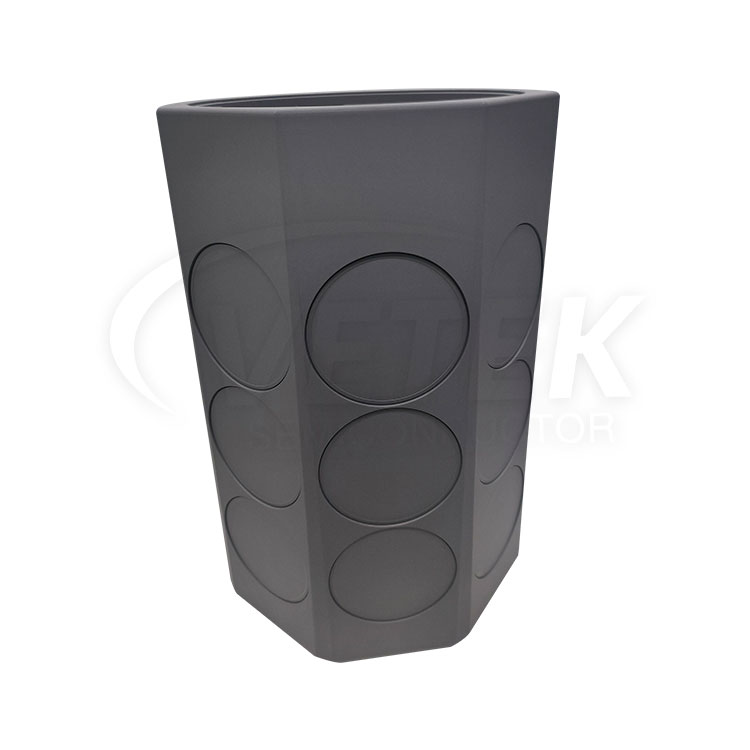The Benefits of Silicon Carbide (SiC) Coating in Industrial Applications
2024-07-10
Silicon Carbide (SiC) coating has emerged as a groundbreaking technology in various industrial applications, thanks to its exceptional properties and versatility. From enhancing the durability of machinery to improving the efficiency of semiconductor devices, SiC coating offers numerous benefits. In this blog, we will explore the key advantages of SiC coating and how it is revolutionizing industries.

1. Superior Hardness and Wear Resistance
One of the most notable properties of SiC is its exceptional hardness. With a Mohs hardness rating of 9.5, SiC is second only to diamond. This extreme hardness translates into outstanding wear resistance, making SiC-coated surfaces highly durable. In industries where equipment is subjected to abrasive materials and harsh operating conditions, such as mining, petrochemical, and manufacturing, SiC coating significantly extends the lifespan of components.
2. Thermal Stability and Heat Resistance
SiC coatings can withstand extremely high temperatures without degrading, making them ideal for applications involving intense heat. SiC has a melting point of approximately 2,700°C (4,892°F), allowing it to maintain its integrity in high-temperature environments. This property is particularly valuable in industries like aerospace, automotive, and energy, where components are exposed to elevated temperatures.
3. Chemical Resistance
Silicon carbide is chemically inert, meaning it resists reactions with a wide range of chemicals. This property makes SiC-coated surfaces highly resistant to corrosion and chemical attack. In chemical processing plants, pharmaceutical manufacturing, and other industries dealing with corrosive substances, SiC coating ensures longevity and reliability of equipment.
4. Electrical Properties
SiC is a semiconductor material with unique electrical properties. SiC-coated semiconductors offer higher efficiency, faster switching speeds, and greater thermal conductivity compared to traditional silicon-based semiconductors. This makes SiC a crucial material in the development of advanced electronics, including power devices, LEDs, and high-frequency applications.
5. Reduced Maintenance and Downtime
The durability and resistance properties of SiC coating lead to reduced maintenance requirements and minimized downtime. Equipment coated with SiC requires less frequent replacement and repair, resulting in cost savings and increased operational efficiency. This advantage is particularly significant in industries where downtime can be costly and disruptive.
6. Environmental Benefits
SiC coating also offers environmental benefits by reducing the need for frequent replacement of components and minimizing waste. Additionally, the efficiency gains in electronic devices and energy systems contribute to lower energy consumption and reduced carbon footprint.
Conclusion
Silicon Carbide coating is a game-changer in various industrial applications, offering superior hardness, thermal stability, chemical resistance, and unique electrical properties. Its ability to enhance the durability and efficiency of components makes it a valuable investment for industries seeking to improve performance and reduce costs. As technology continues to advance, we can expect even more innovative uses for SiC coating, further cementing its place as a critical material in the modern industrial landscape.


